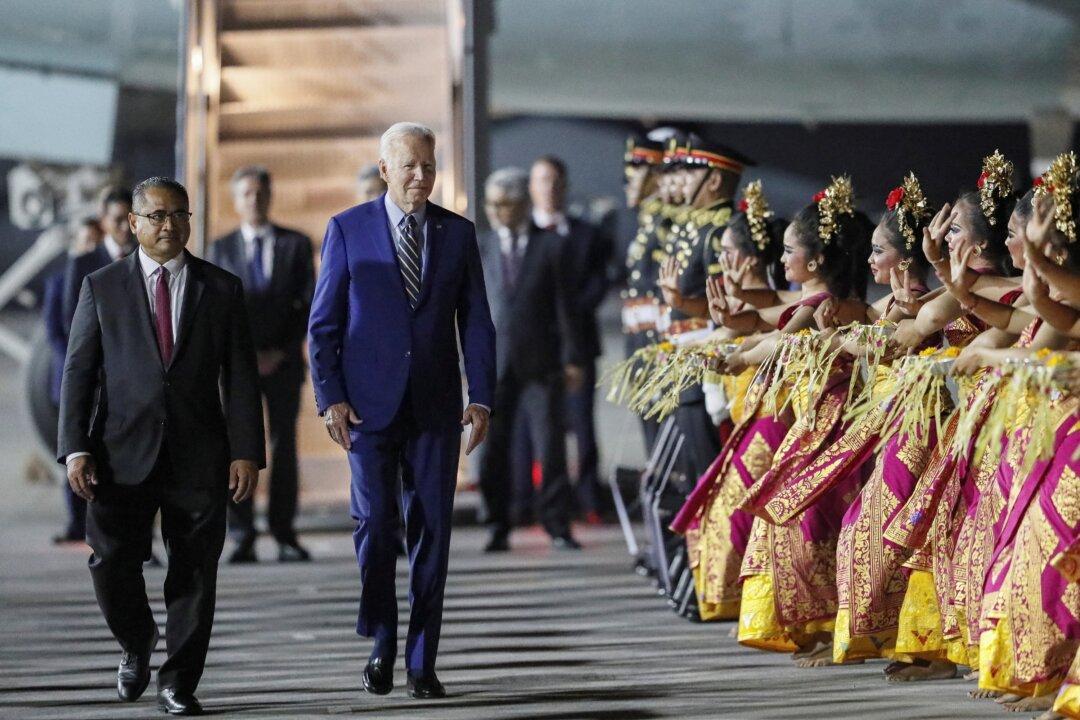NUSA DUA, Indonesia—U.S. President Joe Biden said on Nov. 13 that his country will maintain open communication lines and seek no conflict with China ahead of what are expected to be tense talks on a range of geopolitical issues at the Group of 20 (G-20) summit in Indonesia this week.
Biden and Chinese counterpart Xi Jinping are set to meet face-to-face on Nov. 14 for the first time since Biden took office, as bilateral relations languish at their worst in decades. Jake Sullivan, national security adviser to Biden, told reporters that the meeting could last “a couple of hours.”





